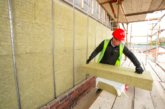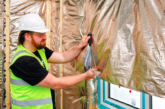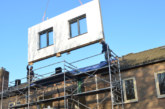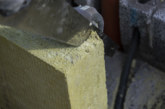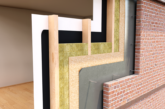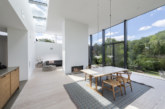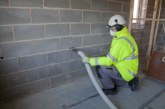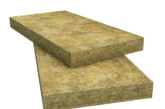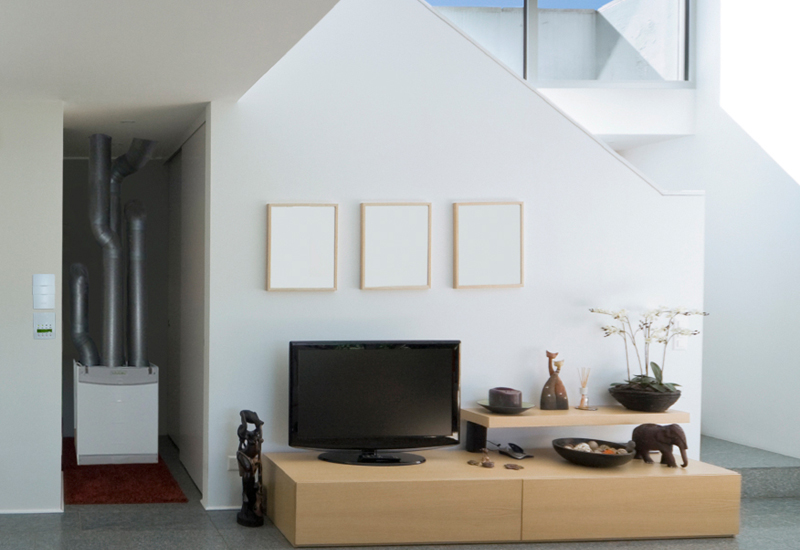
Increasingly airtight homes can compromise indoor air quality and cause overheating in the summer. Robert Dennis, Product Marketing Executive at Airflow Developments offers an overview of ventilation solutions and looks at what to consider when it comes to protecting health and home.
With the UK government committed to reducing carbon emissions by 80% by 2050, there is continued pressure on the industry to focus on how properties can be built and renovated to ensure they are as energy efficient as possible. This pressure has resulted in an increase in the level of insulation and use of double-glazing to maximise the thermal performance of properties and ultimately reduce carbon emissions and greenhouse gases. As such, homes are becoming increasingly tightly sealed – with poor indoor air quality and summer overheating now serious concerns.
With people spending around 90% of their time indoors and over 900 pollutants found within British homes, ensuring there is high quality indoor air within new build properties has never been more important. Damp and mould can spread quickly throughout a home without an effective ventilation system to extract excess moisture and polluted air and supply clean, healthy air. This is particularly an issue in bathrooms and kitchens where everyday activities such as showering and cooking can cause excessive moisture to occur. If not tackled quickly, this can leave unsightly and unpleasant marks on ceilings and walls – leading to time consuming and costly redecoration work for the homeowner.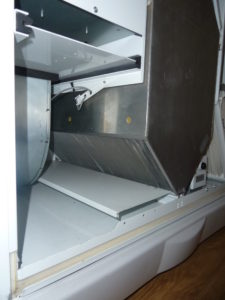
Even more worrying is the negative effect poor indoor air quality can have on health. In the UK, over 15.3 million homes are at risk of Toxic Home Syndrome. This is when a person’s health deteriorates as a result of poor air quality in the home, and due to the improved airtightness of new build homes – it is currently on the rise in the UK. The dangers have recently been brought to light by research published by The Royal College of Physicians (RCP) and the Royal College of Paediatrics and Child Health (RCPCH). The report highlights the long-term effects of poor air quality on a person’s health and suggests that major health conditions such as cancer, asthma, heart disease and obesity are all linked to inadequate air quality.
Mechanical Ventilation with Heat Recovery (MVHR) technology provides housebuilders and developers with an energy efficient, whole house solution. These systems extract damp, polluted air from inside a building and recover the heat energy from it via a heat exchanger, which is then used to pre-warm clean, fresh filtered air that is continuously brought in from outside and circulated within the building. This process recovers heat that would typically be lost as part of the ventilation process, offering the added benefit of reduced heating bills for the building. For example, Airflow’s range of residential MVHR systems achieves over 90% heat recovery efficiency, providing both effective ventilation and energy efficiency for homeowners.
Heated debate
However, a report by the Committee on Climate Change showed that an estimated 20% of homes in England may already be overheating, even during cool summers and if this is not addressed it is projected there will be a steady increase in heat related deaths.
As such, since January 2016, the ErP Directive has made it mandatory for MVHR units to include a summer bypass function. By utilising a motorised damper linked to a temperature sensor to automatically seal off the heat exchanger, a 100% by-pass facility will ensure the MVHR unit can reduce solar gain within the property by guaranteeing that the supply air is not heated by the hot extract air passing through the heat exchanger.
Adroit solution
Airflow Developments has designed a range of MVHR units that include a 100% effective by-pass feature such as the new Internet capable and Passive House approved Adroit range. The system effectively combats overheating and provides homeowners with a user friendly and intuitive whole house ventilation solution that can be used to monitor and control indoor air environments via smartphone, tablet or PC. The Adroit units also feature four different, customizable profiles – Home, Away, Boost and Fireplace. They give users the ability to program the units according to their personal routines and preferences to maximise energy efficiency.
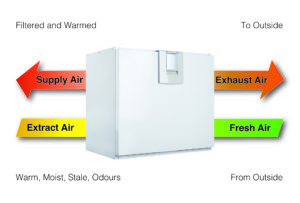 Consumers are becoming more energy aware, and with an estimated 41% of UK homeowners currently having some form of connected technology installed in their home, choosing systems that are capable of providing real-time monitoring and control of ventilation in the design stages of a new build is an important specification.
Consumers are becoming more energy aware, and with an estimated 41% of UK homeowners currently having some form of connected technology installed in their home, choosing systems that are capable of providing real-time monitoring and control of ventilation in the design stages of a new build is an important specification.
Upgrade opportunity
With every industry becoming increasingly competitive, it is vital for property developers and housebuilders to maximise their offering. Including MVHR systems with new build homes is an ideal way to do so. They provide an excellent upgrade opportunity and can make the property more appealing to prospective buyers by reducing energy bills, increasing the life of the property and improving the home buyer’s quality of life.
It is important for property developers to only purchase MVHR systems that adhere to all the legislation that currently applies to the industry, which includes the recently introduced ErP Directive. Those wishing to take advantage of the latest energy recovery and connected home technology should always seek specification advice from a reputable manufacturer.

